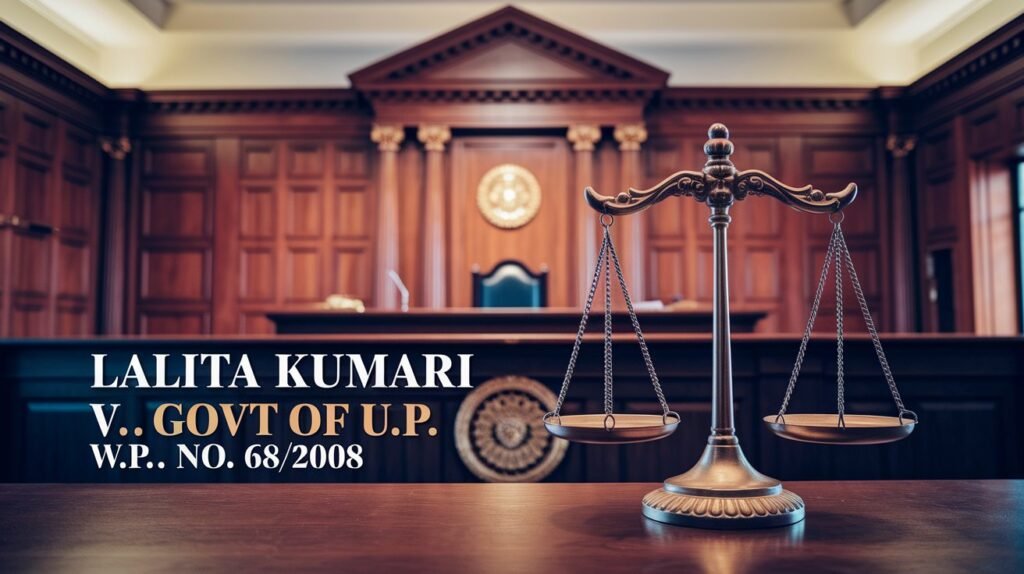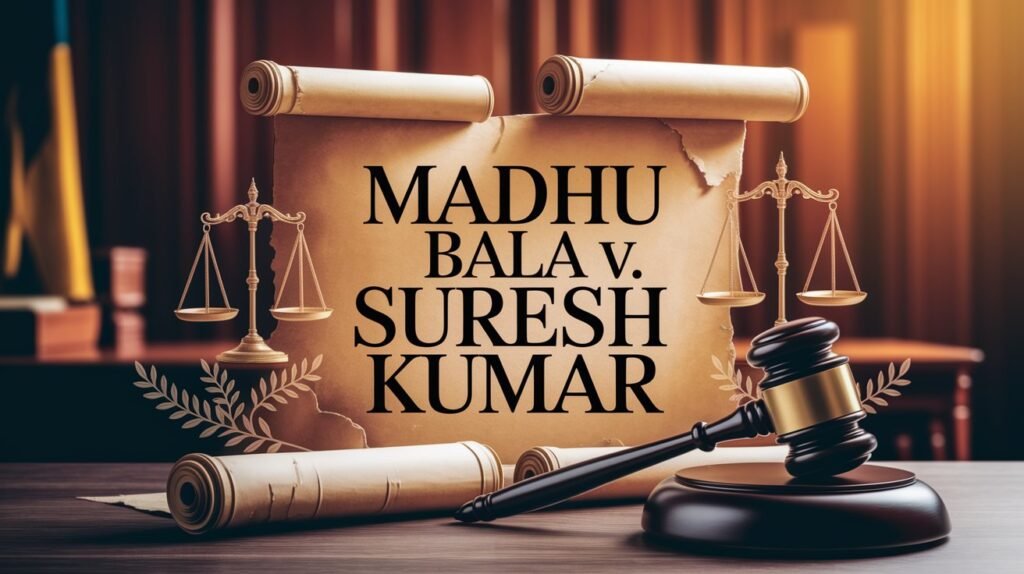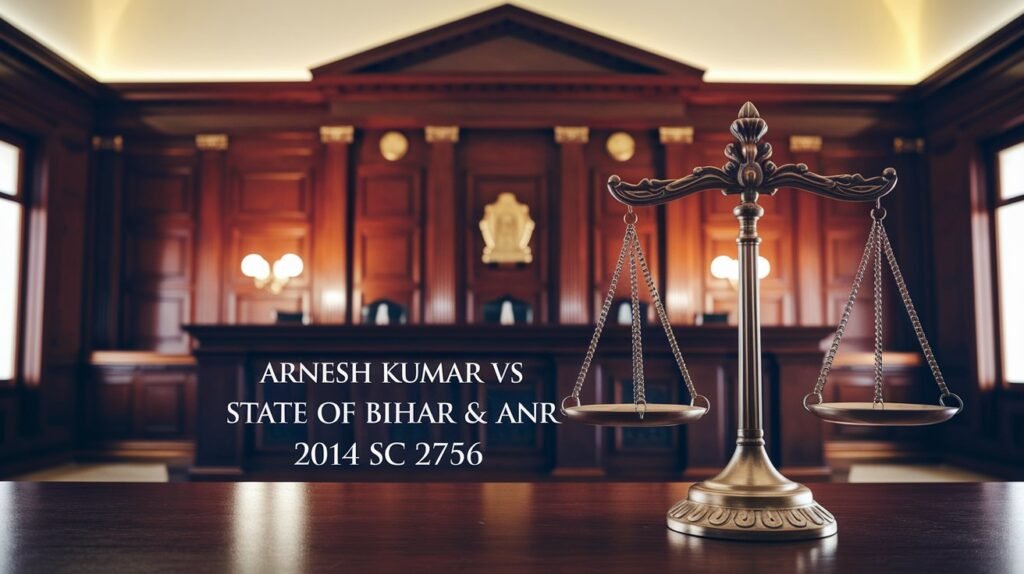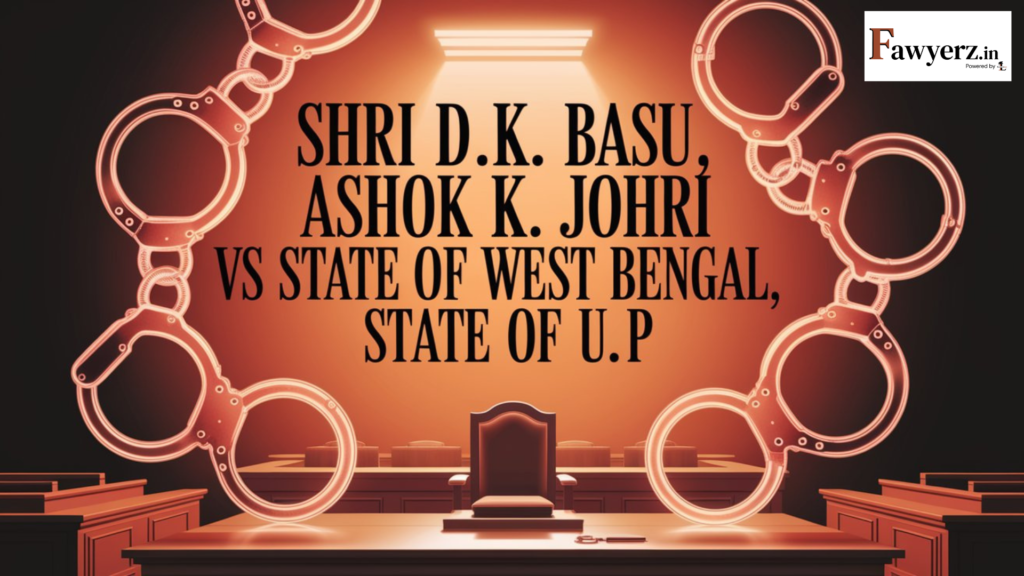State of Gujarat v. Mohanlal Jitamalji Porwal 1987 (Case Summary)
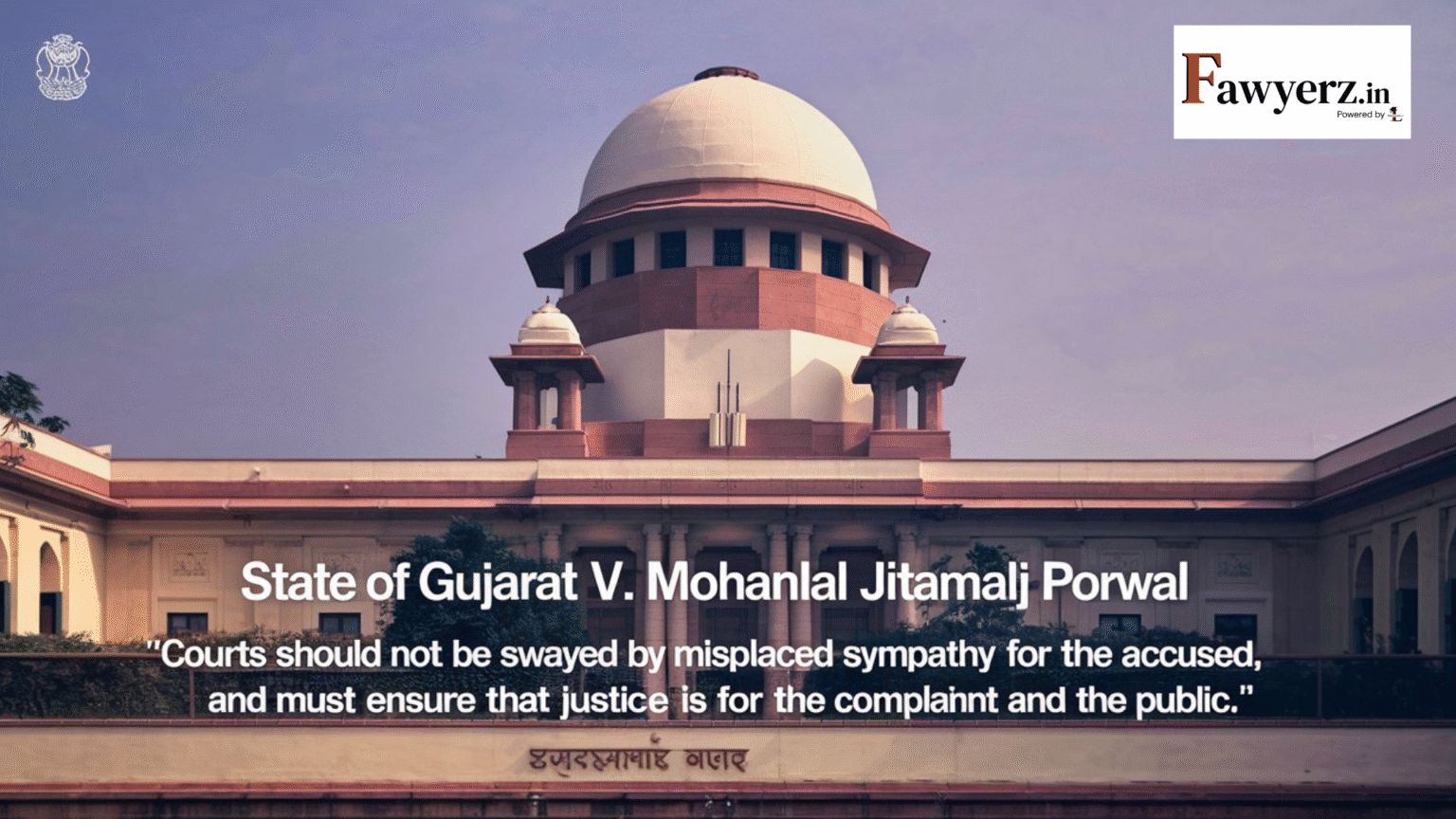
This case is a powerful reminder that victims and the society at large have a stake in the outcome of criminal trials. The Supreme Court clarified that courts should not be swayed by misplaced sympathy for the accused, and must ensure that justice is done for the complainant and the public.
Table of Contents
ToggleFacts of State of Gujarat v. Mohanlal Jitamalji Porwal
- The accused were prosecuted for misappropriation of a large quantity of levy sugar, which was public property meant for fair price distribution.
- The prosecution’s case was based on documentary and circumstantial evidence showing illegal diversion of sugar for personal gain.
- The trial court acquitted the accused, citing alleged weaknesses in the prosecution’s evidence.
- The State of Gujarat filed an appeal before the Supreme Court against the acquittal
Issues framed
- Whether the trial court erred in giving undue benefit of doubt in a case involving economic offences?
- Whether courts should give equal consideration to the rights of the complainant and the interest of society during criminal trials?
- Whether a criminal trial can be allowed to become one-sided in favour of the accused under the guise of procedural fairness?
Subordinate Court Judgment
The trial court acquitted the accused, citing gaps in the prosecution’s case and treating the benefit of doubt in favour of the defence. The State challenged this decision before the Supreme Court.
Judgment of State of Gujarat v. Mohanlal Jitamalji Porwal
The Supreme Court observed that while it is important to uphold the presumption of innocence, courts should not lose sight of the purpose of criminal trials namely, justice for the victim and the community. It stressed that judges must evaluate evidence with a balanced approach and avoid over-technical reasoning that may defeat substantive justice.
The Court pointed out that economic offences like the one involved in this case are not private matters but crimes against the state and society. It held that undue leniency or excessive sympathy for the accused weakens public confidence in the justice system. The trial court had, according to the Court, unnecessarily stretched the benefit of doubt and failed to appreciate the evidence properly.
In the final judgment, the Supreme Court set aside the acquittal and directed a fresh consideration of the evidence. The case is now regularly cited to argue that courts should not treat prosecution cases lightly, especially when public interest or economic harm is involved. It also highlighted that the role of the victim or complainant must not be forgotten in the pursuit of procedural fairness.


